When a man took a group of Australians hostage in a downtown Sydney cafe on Monday, he hung a black flag with Arabic writing in the window of the café in a clear attempt to identify with extreme Islamist groups.
Police later stormed the cafe and two hostages and the gunman, Iranian-born Man Haron Monis, were killed.
Earlier, Australian Prime Minister Tony Abbott said that the gunman was “claiming political motivation.”
Australia is more than 8,000 miles away Iraq and Syria yet it has found itself a target of extremist Islamist sympathisers. The reasons range from its strong ties to the United States, its involvement in the wars in Iraq and Afghanistan and the alienation of a small minority of Muslims brought up in Australia.
Chaotic Scenes as Sydney Hostage Crisis Unfolds
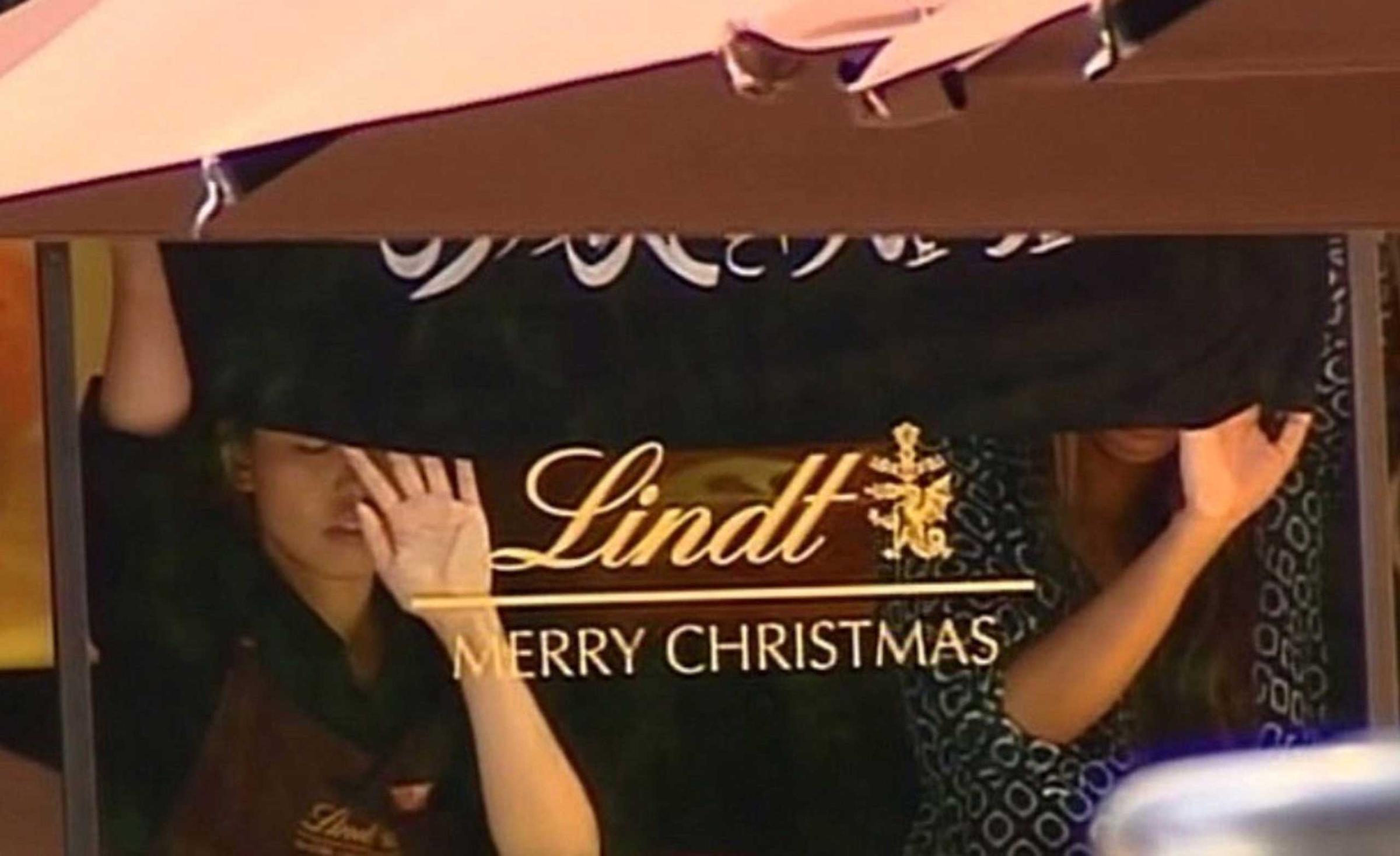
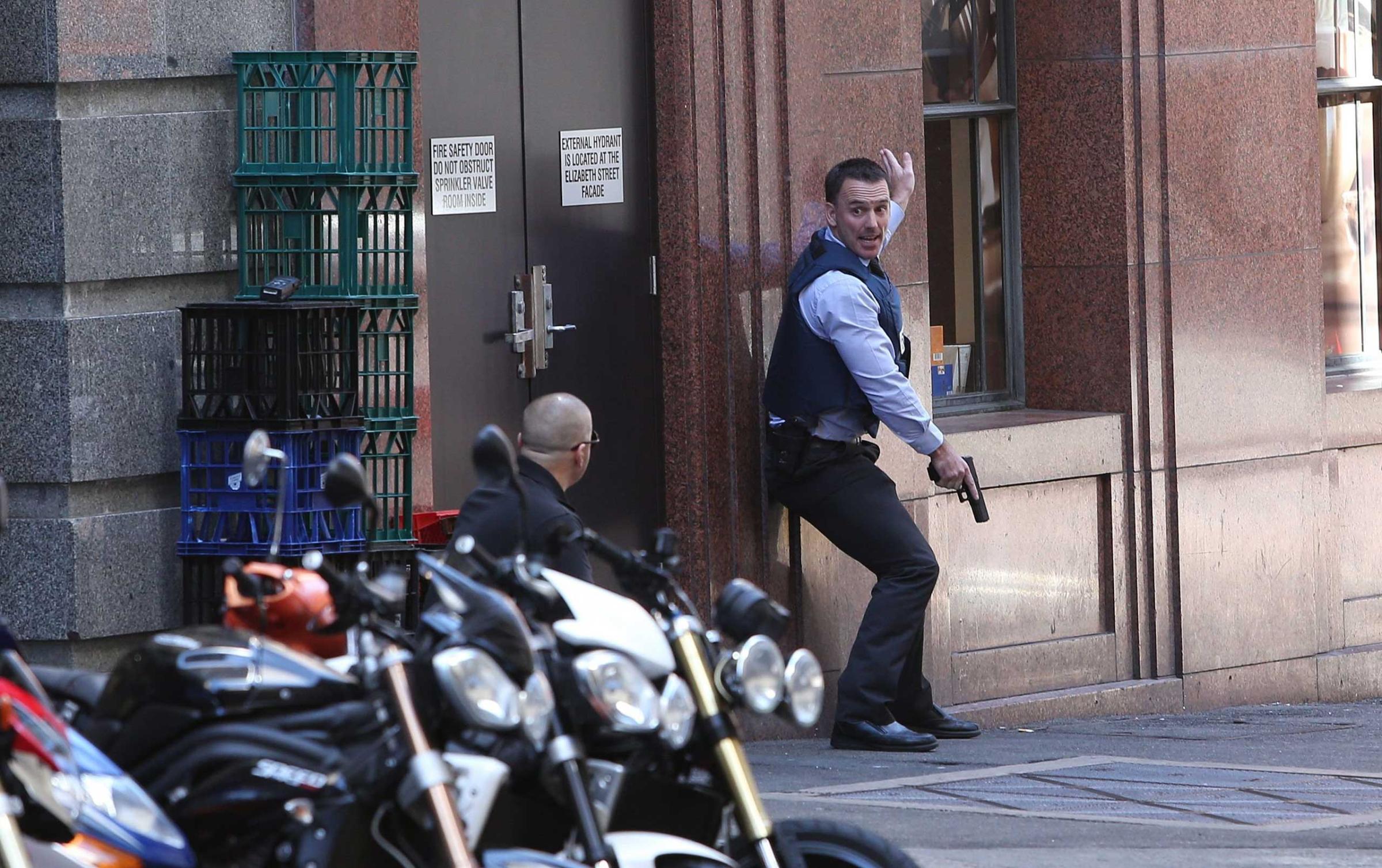
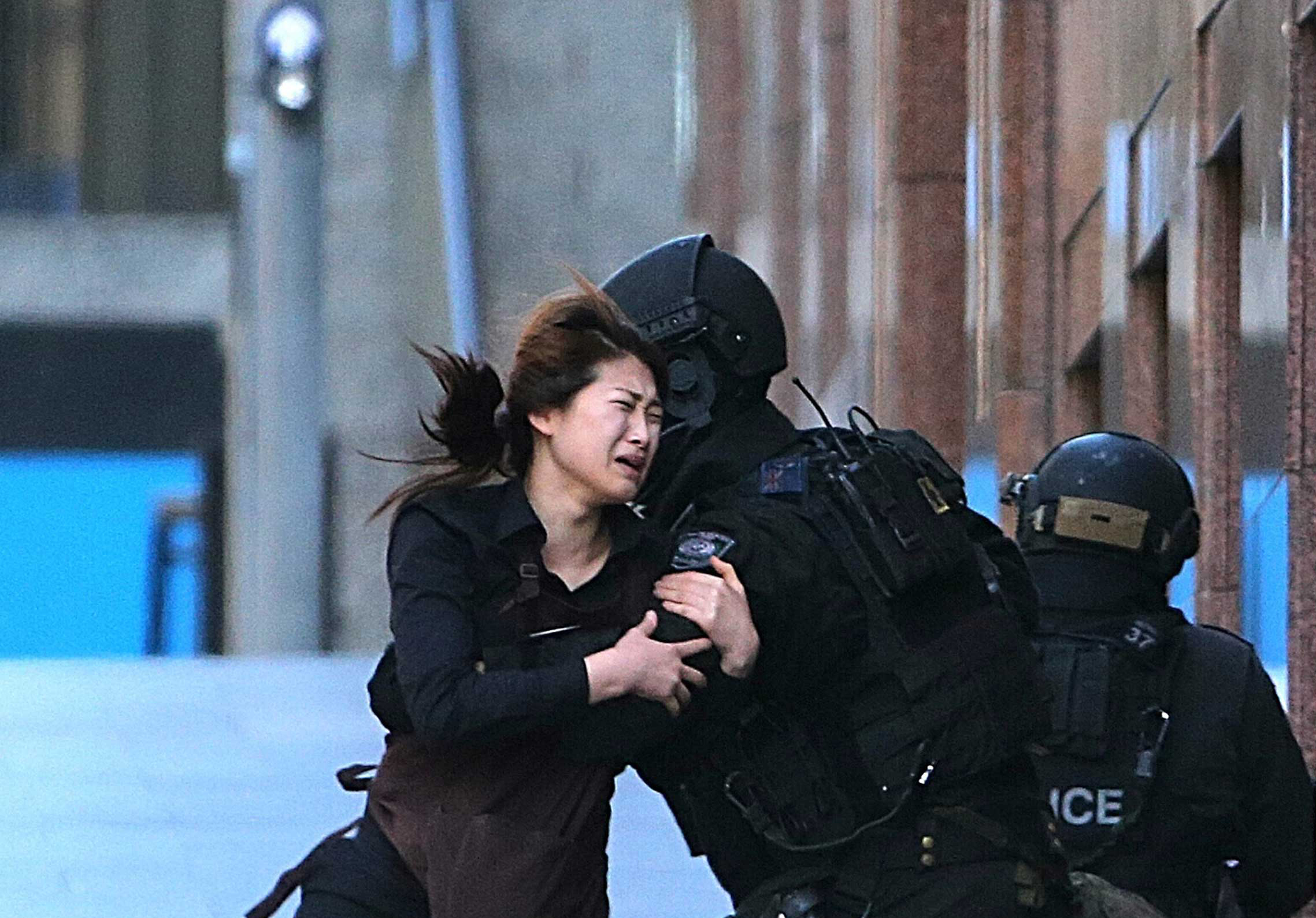
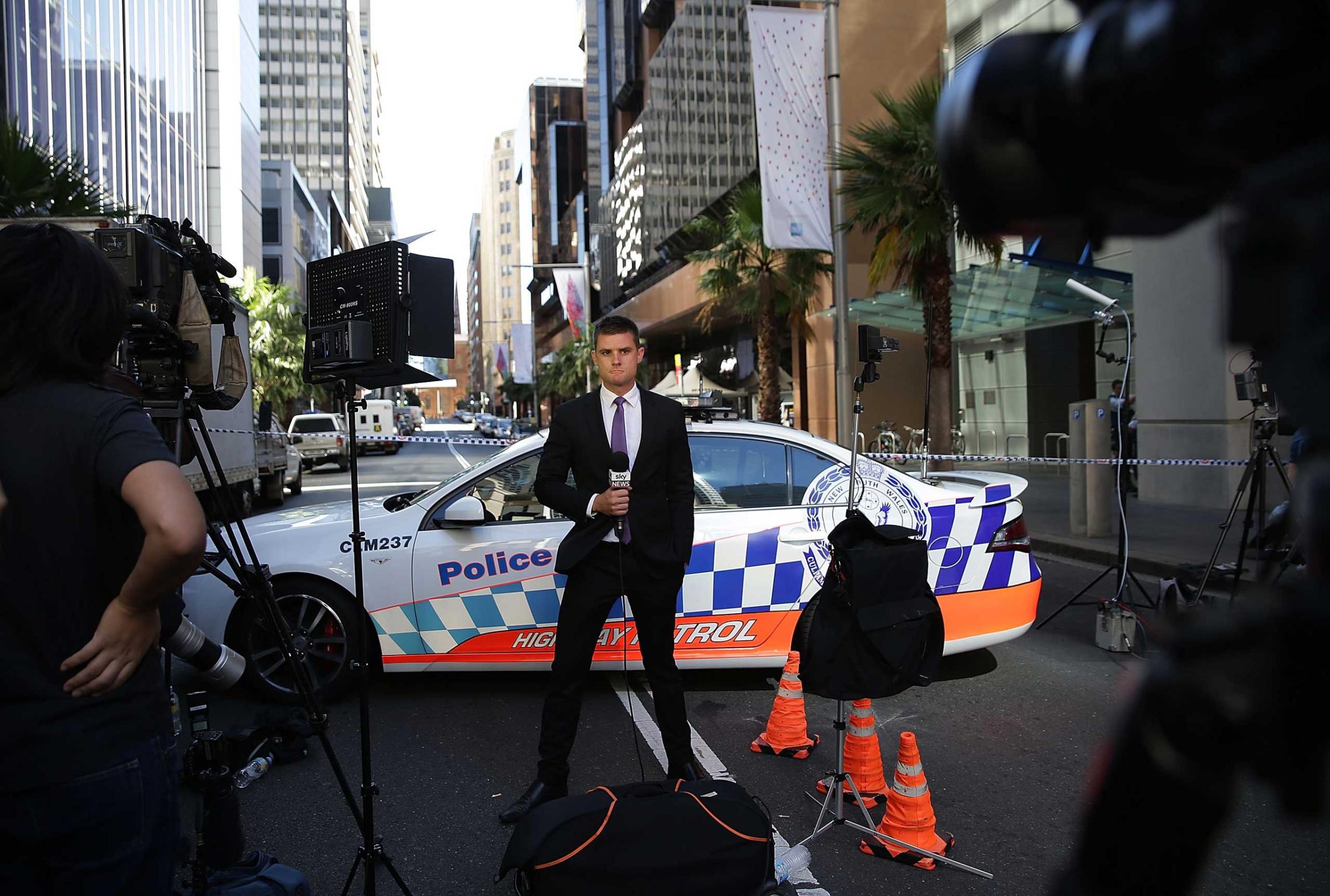
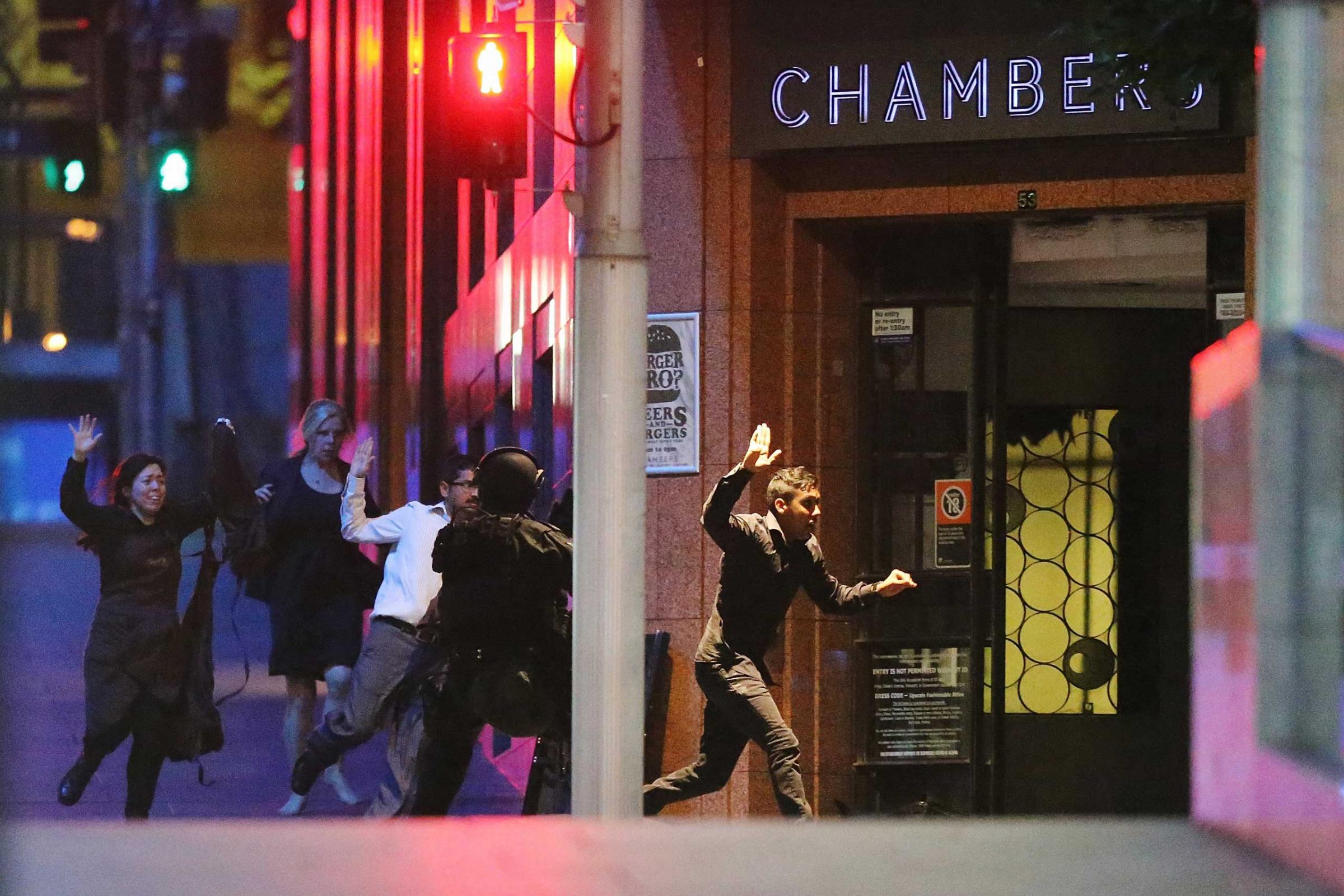
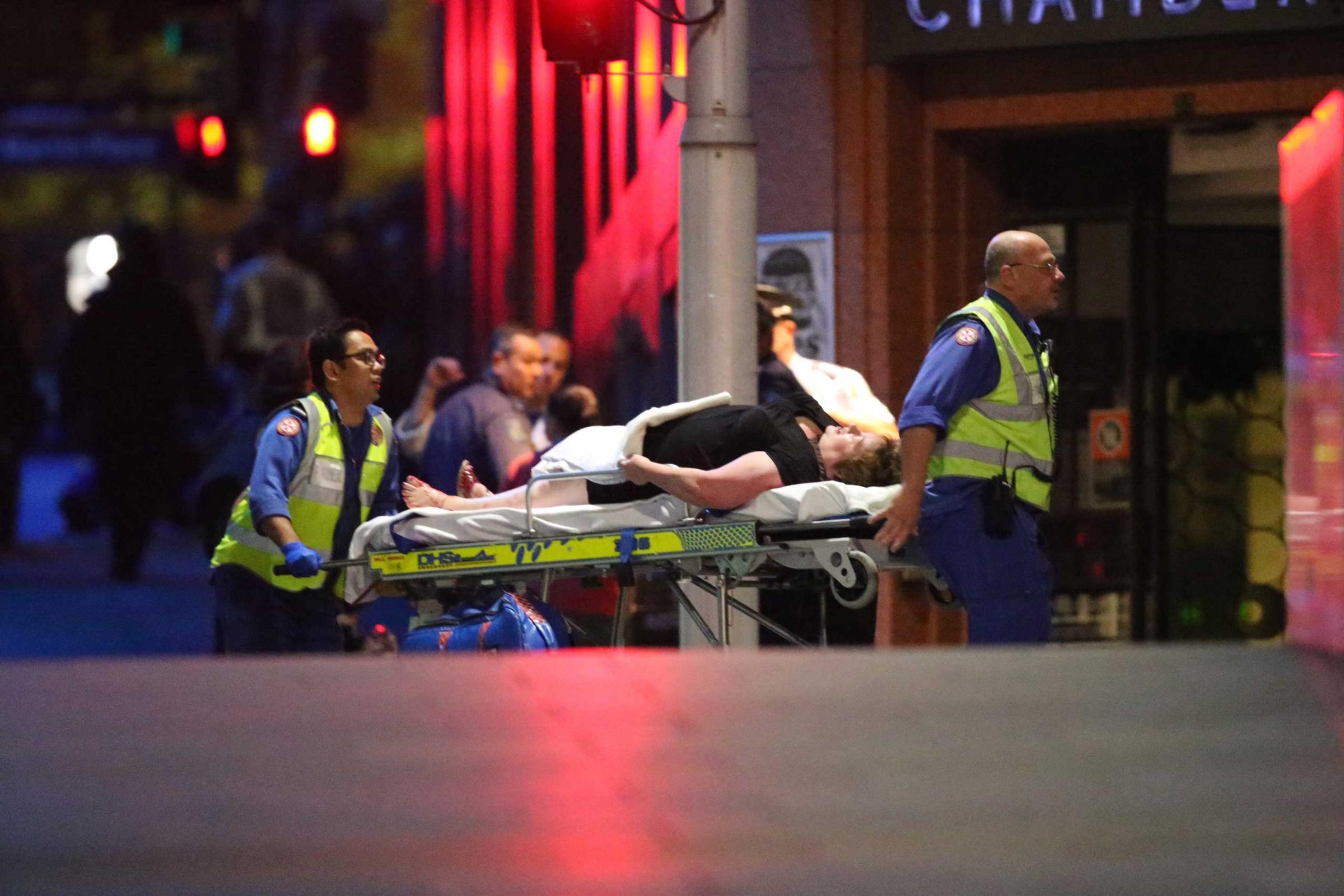
Around 70 Australians are currently fighting for Islamic State in Iraq and Syria (ISIS)
The Australian Security Intelligence Organization (ASIO) has said that Australia is a significant source of foreign fighters given the relatively small size of its population, identifying around 70 Australians who are currently fighting for ISIS in Iraq and Syria out of an estimated 3,000 Western fighters.
Speaking to a Senate inquiry last Thursday, ASIO’s Deputy Director-General Kerri Hartland said 20 Australian citizens had already died in the conflict and added “very few of the Australians who traveled to previous conflicts were involved in violence on the scale seen in Syria and Iraq.” ASIO investigated only 30 people who traveled to Afghanistan or Pakistan to train in extremist camps between 1990 and 2010.
Australia has committed military forces and aircraft to the U.S.-led coalition against ISIS
Australia has been a long-time ally of the U.S., fighting alongside American forces in the Second World War, Korea, Vietnam, Afghanistan and Iraq. Abbott deployed aircraft quickly, sending fighter jets and about 600 military personnel to commence operations against ISIS in early October.
Australian air strikes have since killed “multiple” ISIS targets in Iraq according to Vice Admiral David Johnston of the Australian military. He said he was being “cautious” about giving more detail on the strikes out of fear it could be used against Australia as part of ISIS propaganda.
The Australian government anticipated future terrorist attacks
Australia raised its terror threat level in September from “medium” to “high”, with Abbott saying that the government had “a body of evidence that points to the increased likelihood of a terrorist attack in Australia.”
Australia launched its largest ever counterterrorism raids on Sept. 18 when around 800 officers searched more than dozen properties in Sydney. The raids were carried out because of a suspected plot to kill non-Muslims in Sydney. One man, a 22-year-old called Omarjan Azari, was charged with conspiring to commit a terrorist act with a senior Australian militant in ISIS.
The senior Australian militant suspected of being behind the plot was Mohammad Ali Baryalei, a 33-year-old responsible for recruiting many fellow Australians. He is believed to have died in October fighting with ISIS.
Australian citizens have also given financial donations to terrorist groups
Azari and another unnamed Australian man were charged on Monday with financing the travel of ISIS recruits from Australia to the Middle East and making $15,000 available to the militant group in August.
A recent ASIO report to Parliament said that many others in Australia have “provided support and encouragement to overseas extremists and recruited new supporters to the jihadist cause.”
Australian ISIS fighters have gained notoriety on social media
Khaled Sharrouf became notorious when he posted a photo on Twitter in July of his seven-year-old son holding a decapitated head. Sharrouf, a boxer from Sydney, was jailed in 2005 for his role in planning Australia’s most serious terrorist plot. But while on parole in January, Sharrouf managed to flee using his brother’s passport, eventually making his way to Syria.
Abdullah Elmir, 17, from Sydney addressed Abbott in an ISIS video posted to YouTube, telling him the jihadists will not stop until their black flag is flying high in every single land. Elmir, who went missing from his home in June, is seen holding a rifle and surrounded by dozens of other young militants. “To Tony Abbott, I say this. These weapons that we have, these soldiers, we will not stop fighting,” he said.
The government has canceled the passports of around 100 Australians wishing to join jihadists
“The government is gravely concerned by the fact that Australian citizens are heading to Iraq and Syria not only to fight but to take leadership roles in radicalizing others,” Australia’s Foreign Minister Julie Bishop told parliament in July.
Abbott has expressed concern that extremists will return home as trained terrorists and pose a threat to national security.
More Must-Reads from TIME
- Caitlin Clark Is TIME's 2024 Athlete of the Year
- Where Trump 2.0 Will Differ From 1.0
- Is Intermittent Fasting Good or Bad for You?
- The 100 Must-Read Books of 2024
- Column: If Optimism Feels Ridiculous Now, Try Hope
- The Future of Climate Action Is Trade Policy
- FX’s Say Nothing Is the Must-Watch Political Thriller of 2024
- Merle Bombardieri Is Helping People Make the Baby Decision
Write to Naina Bajekal at naina.bajekal@time.com